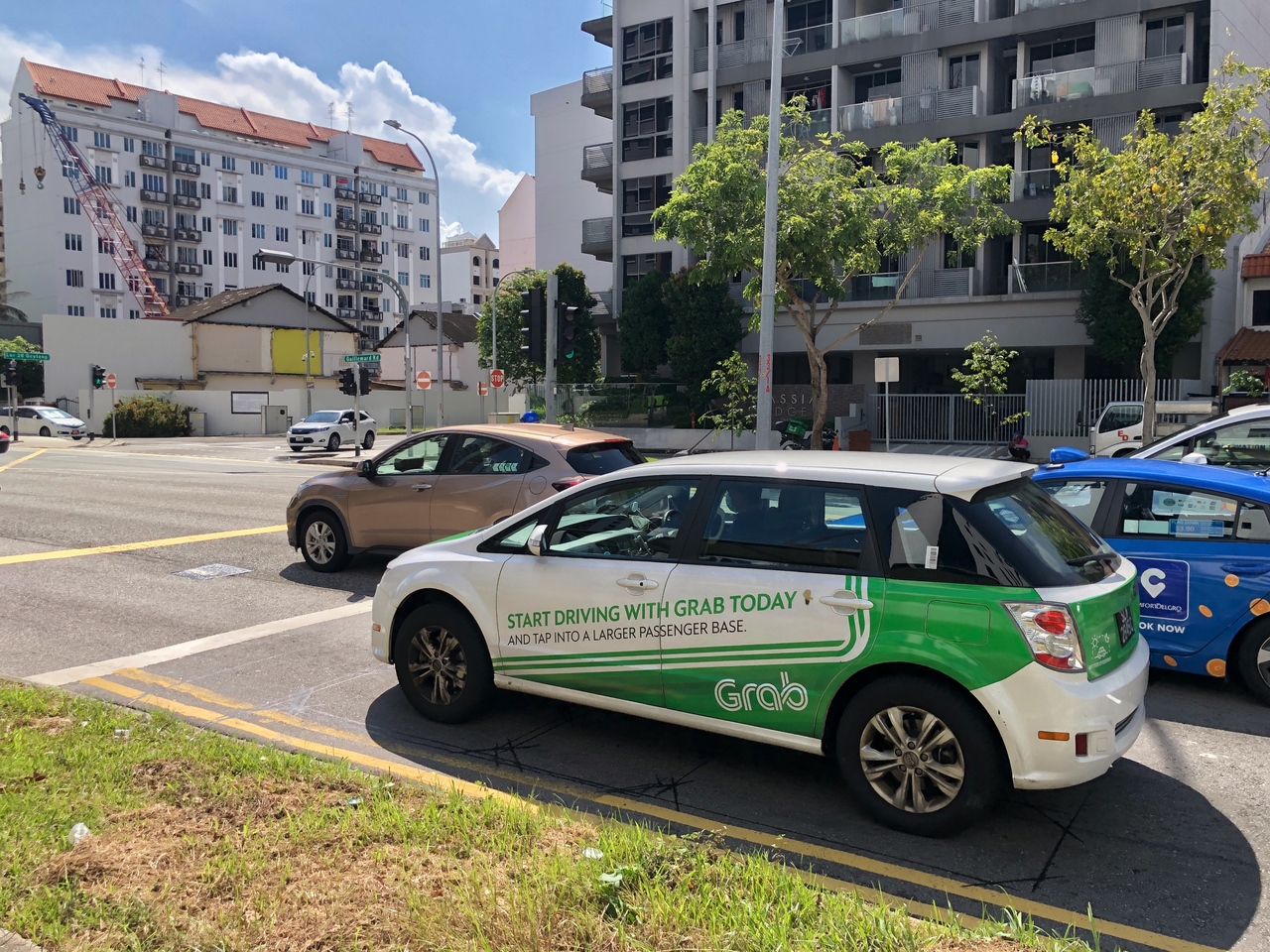Grab sets age limit of 10 years for private-hire cars amid fresh rules for ride-hailing and taxi firms
Sign up now: Get ST's newsletters delivered to your inbox

The framework aims to level the playing field between cabbies and private-hire drivers.
PHOTO: ST FILE
Toh Ting Wei
Follow topic:
SINGAPORE - Ride-hailing passengers using the Grab platform will no longer travel in old cars by July 2022, with the firm phasing out these vehicles.
Grab drivers who operate cars that are seven-years-old and above will also be required to complete an additional safety and maintenance course.
These changes were announced by the operator on Friday (Oct 30), in response to the introduction of regulations aimed at levelling the playing field between taxi companies and ride-hailing operators.
This new set of stricter rules for ride-hailing firms - which brings them under similar regulations as taxi companies - comes under the Point-to-Point (P2P) Passenger Transport Industry Act that was passed in Parliament last year.
The regulatory framework was to have taken effect by June this year, but was postponed owing to the Covid-19 crisis.
Grab, along with Gojek, Tada Mobility and Comfort Transportation, were awarded the ride-hail licence for operators that offer booking services through mobile apps.
Grab was also awarded the carpool licence to let it operate its GrabHitch service.
It said on Friday (Oct 30) that the phasing out of older cars will help it to fulfil a new requirement for mandatory inspection.
Cars on its platform are required to achieve a first inspection passing rate of at least 90 per cent. The roadworthiness and emission standards of vehicles are checked during the inspection.
Grab said its data shows vehicles of up 12 years old can meet the requirement standards. But it settled on an age limit of 10 after taking into account the rules on renewal of car ownership.
From 7pm on Friday, new drivers can sign up to Grab only if their cars are below 10 years old.
From Nov 1 next year, existing drivers can drive only cars that are below 12 years old.
By July 2022, all drivers' car must be below the age 10.
It did not disclose how many cars would be affected by the change, but said it will help drivers who are affected.
The Straits Times understands that Gojek will work with drivers and vehicle owners to meet the requirements.
A series of other new requirements, like taxi drivers being able to sign up with any ride-hailing firm, kicked into effect on Friday as part of the new regulatory framework.
The Land Transport Authority (LTA) and the Public Transport Council (PTC) said it has also awarded a provisional licence to local start-up Ryde Technologies to offer both ride-hailing and carpooling services for a year, starting on Friday (Oct 30).
LTA said this is to enable Ryde to "fine tune their operational capabilities in order to meet LTA's regulatory standards for safety and service provision" before they can be considered for full licences.
Ryde said on Friday it will work with LTA to improve its operations.
LTA and PTC said: "The new framework provides LTA and the PTC with greater regulatory oversight over the P2P sector, to protect the safety and interests of P2P commuters and drivers.
"Licensees must comply with the conditions of their licences, including meeting LTA's safety standards and ensuring that partnership arrangements with drivers are non-exclusive in nature."
PTC added the new framework will also enable it to enforce against fare evasion and overcharging by drivers on trips booked through licensed ride-hail service operators.
ComfortDelGro group chief corporate communications officer Tammy Tan said the regulatory framework protects the interests of commuters and ensures ride-hailing operators are subject to "similar strict guidelines that have been in place for taxi operators for so many years".
Ride-hailing firms Grab and Gojek also welcomed the move.
Gojek Singapore general manager Lien Choong Luen, who praised the move allowing taxi drivers to sign up with any ride-hailing platform, said: "Ride-hail customers can also enjoy a more reliable ride-hail experience by virtue of an enlarged supply pool, which means higher availability of drivers and shorter waiting times."

